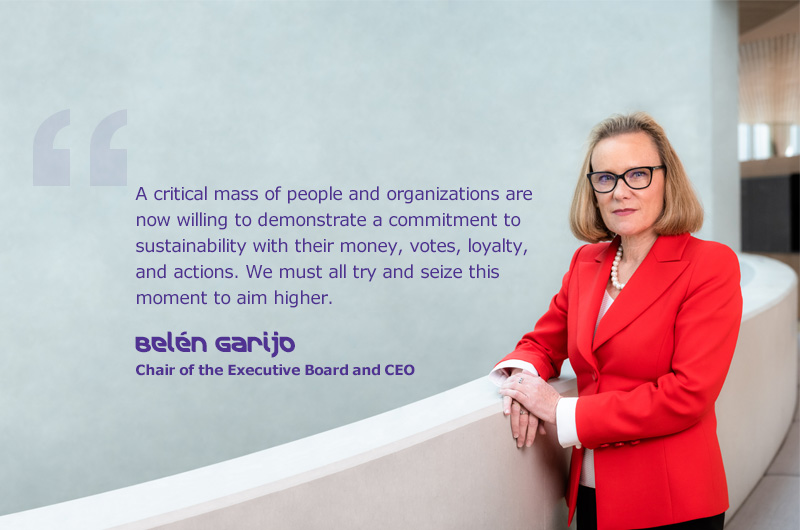Dear Readers,
Humanity made a bold commitment in 2015 to end poverty and hunger, protect the planet, and ensure healthy lives for all. The adoption of the U.N. 2030 Agenda for Sustainable Development was a call to action for governments, companies and citizens worldwide to contribute to 17 Sustainable Development Goals (SDGs) by 2030.
We are now at the halfway point for this historic 15-year initiative. Therefore, it is timely to reflect upon where things stand. Sadly, the Covid-19 pandemic has affected much more than our global health. The U.N. SDG 2021 report highlighted how progress on many other SDGs, including poverty, education, and gender equality, has stalled or reversed since 2020. Meanwhile, global CO2 emissions are nearing record highs once again.
Fortunately, the global response to the pandemic has demonstrated that humanity can achieve tremendous things when science and technology are harnessed for the common good. There is a renewed sense of purpose within society and optimism that we can overcome other major challenges such as climate change. A critical mass of people and organizations are now willing to demonstrate this commitment to sustainability with their money, votes, loyalty, and actions. We must all try and seize this moment to aim higher.

That is why this Sustainability Report carries extra significance for our company and me personally. Our three core sustainability goals reflect our accountability to make an impact. First, we will achieve climate-neutral operations by 2040. Second, we will integrate sustainability into all value chains by 2030. And third, we will achieve human progress for more than one billion people through sustainable science and technology in 2030. We are on track to meet these goals.
Furthermore, we will continue to support the United Nations Global Compact. Its principles of human rights, labor standards, environmental protection, and anti-corruption are part of our social license to operate.
Here are just a few examples of our sustainable leadership during 2021.
Last year, we committed to a 50% reduction in our direct (Scope 1) and indirect (Scope 2) greenhouse gas (GHG) emissions by 2030 compared to 2020. In 2021, these GHG emissions decreased by 9% compared to the prior year.
Converting 80% of our purchased electricity to renewable sources by 2030 is one way we will achieve these GHG targets. Last year, our electricity purchased from renewable sources increased from 27% to 30%. And in Brazil, our sites were fully powered by renewables for the first time. The process to join the Science-Based Targets Initiative also began last November. This will commit us to help achieve the goals of the Paris Agreement through science-based emission reduction targets.
In global health, we provided 182 million praziquantel tablets – and our 1.5 billionth tablet overall – to the World Health Organization (WHO) to treat schistosomiasis in endemic African countries. The Lancet confirmed last December that the prevalence of this neglected tropical disease had already decreased by 60% between 2000 and 2019. We remain on track to helping achieve its elimination as a public health problem by 2030.
Regarding social governance, we are harnessing our workplace diversity and inclusive culture to help unlock tremendous value for patients, customers, colleagues, and partners. Last year, we announced our intention to achieve gender parity in all leadership positions worldwide by 2030. We have made good progress since 2020, increasing the percentage of females in leadership roles from 35% to 36%. Underrepresented racial and ethnic groups will also comprise 30% of all leadership positions in the United States, Asia, Latin America, the Middle East, and Africa by 2030.
These sustainability efforts represent some of the contributions being made within our organization. However, I believe we can make an even greater contribution beyond it – through science and technology innovations that enable others to achieve their sustainability targets faster. Accordingly, last year we agreed to make sustainability a cornerstone of future growth and innovation.
One early demonstration of our pioneering spirit is to create a more sustainable future for food that disconnects animals from the supply of meat and other proteins. Customer projects are underway to develop and commercialize cultured meats and other products. Last year, we also awarded the Future Insight Prize of € 1 million to the inventors of a process that transforms plastics and other non-edible biomass into food.
In this report, you will discover many other insights about how our company is creating long-term sustainable value. Together with our committed global team of nearly 60,000 employees, we will continue raising the bar.
Sincerely,
Belén Garijo
Chair of the Executive Board and CEO